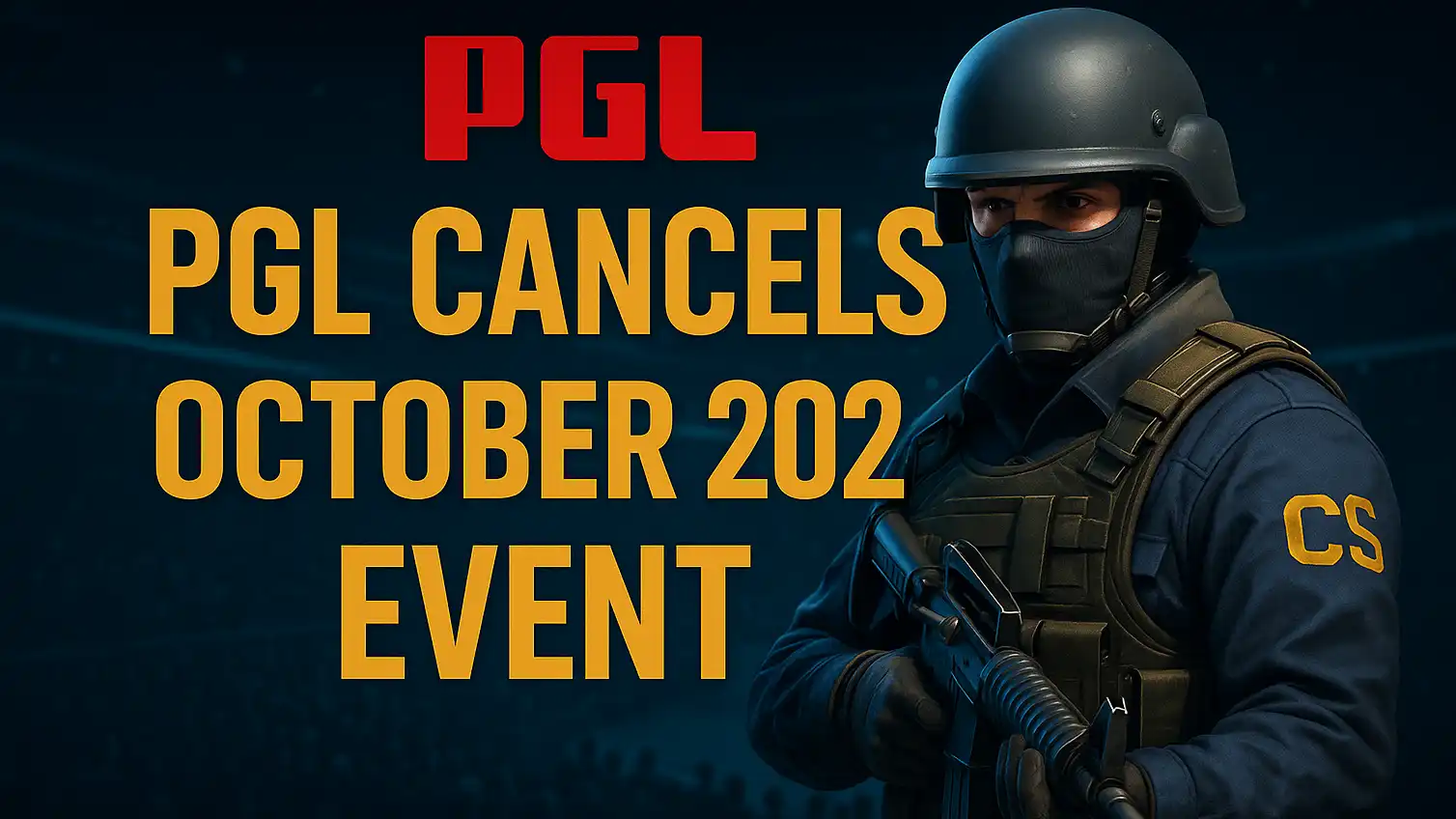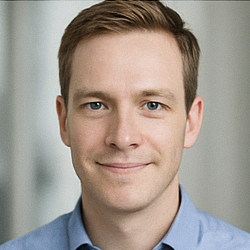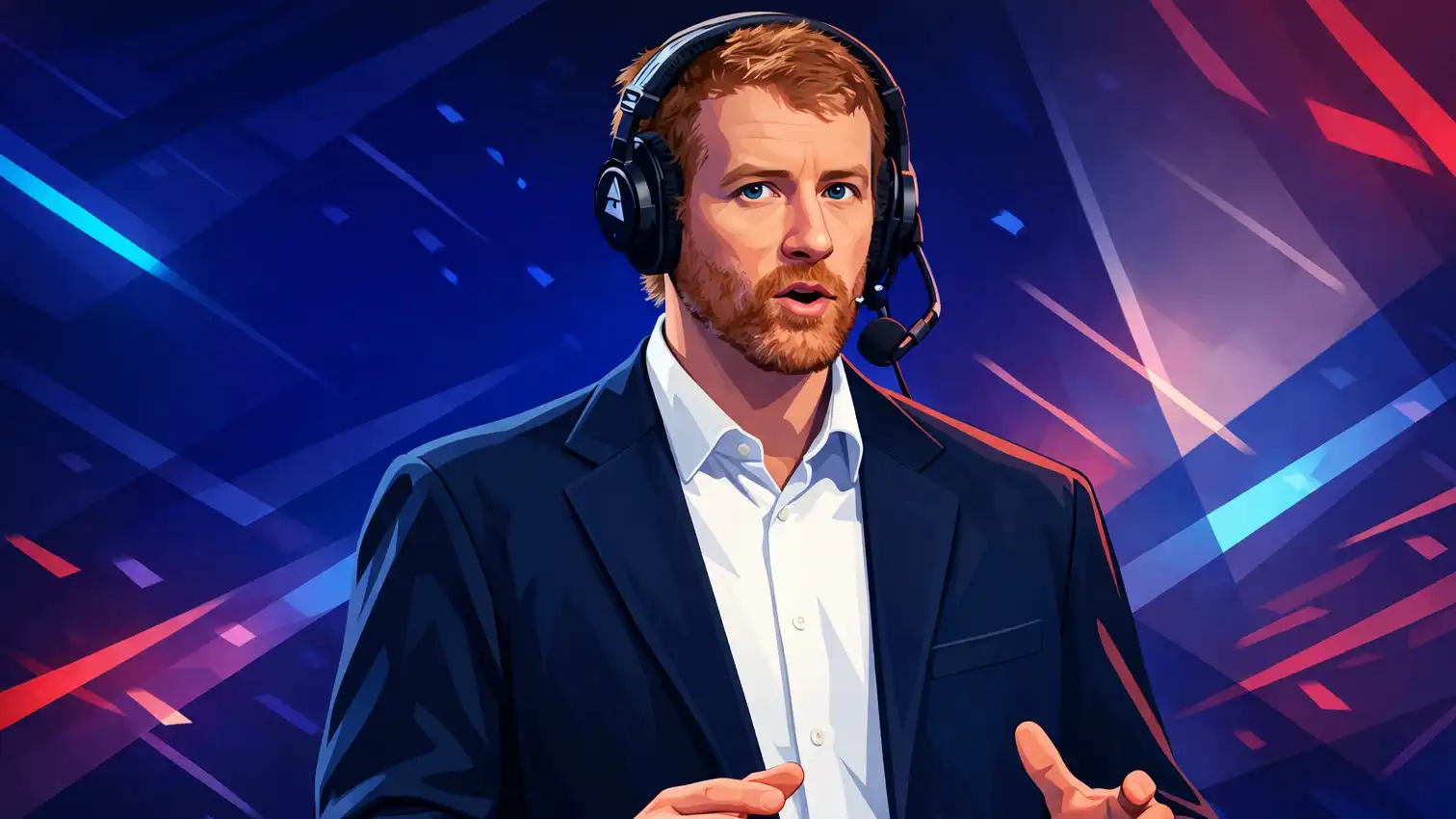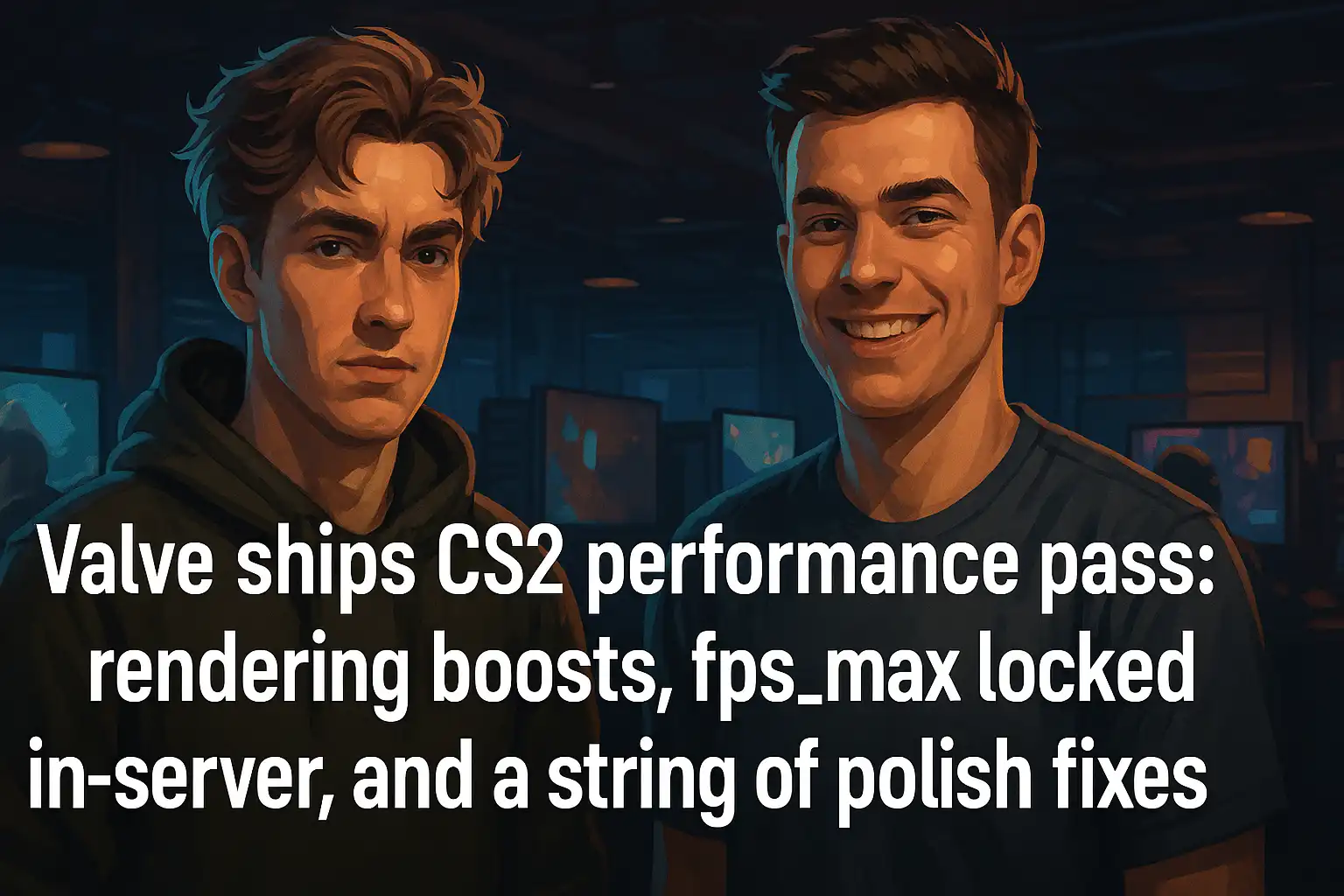PGL Cancels Its October 2026 CS2 Event After Date Clash With Rival Organizer

PGL Cancels Its October 2026 CS2 Event After Date Clash With Rival Organizer
PGL has officially cancelled the CS2 tournament originally scheduled for September 28 – October 11, 2026, citing a full date overlap with another event that was announced months after PGL published its 2026 calendar. The company reiterated that its full schedule was made public on March 31, 2024, and claimed that a different organizer later placed multiple events directly on top of PGL’s dates.
Although PGL’s announcement did not specify the organizer involved, numerous reports across the esports media landscape link the clash to ESL Pro League Season 24, which is expected to occupy that early-October window.
PGL emphasized in its statement that the early-October tournament “will no longer take place due to a complete overlap with another organizer’s event,” adding that the conflict compromises competitive integrity and creates unnecessary logistical strain on teams.
Updated PGL CS2 Calendar for 2026
After a series of adjustments, cancellations, and date shifts, PGL’s 2026 Counter-Strike 2 calendar now looks as follows:
PGL Cluj-Napoca 2026 — February 9–22 (shortened by one day)
PGL Bucharest 2026 — April 3–11 (previously April 3–12)
PGL Astana 2026 — May 7–17 (shifted to better connect with the CS Asia Championships 2026 and allow a one-day transfer buffer for teams)
PGL Summer 2026 — cancelled due to a major schedule collision with the expanded Esports World Cup 2026
PGL Fall 2026 (early October) — cancelled because of the newly announced event from another organizer
PGL Belgrade 2026 — October 22 – November 2, effectively serving as PGL’s final Tier-1 LAN of the year
PGL noted that its partnership with Perfect World allowed for coordinated scheduling changes around the CS Asia Championships 2026, helping ensure smooth team transfers and reducing conflicts between the two events.
Second Cancellation Following the Esports World Cup Expansion
This is PGL’s second major 2026 cancellation. In October 2025, the company dropped its planned August 6–16, 2026 Summer event after the Esports World Cup announced a 32-team CS2 tournament for August 12–23, creating an unavoidable overlap.
PGL framed that decision as an effort to maintain a healthy open circuit and avoid dividing the top-tier competitive field across two simultaneous S-tier events.
With the October event now cancelled as well, PGL’s 2026 offerings have narrowed considerably from the original multi-stop circuit to a more compact lineup focused on Cluj-Napoca, Bucharest, Astana, and Belgrade.
Valve Rules Add More Pressure to the 2026 Calendar
The October cancellation also unfolds against the backdrop of broader calendar instability. Valve’s updated tournament-operations guidelines require Tier-1 organizers to publish key event details by strict deadlines. Missing these deadlines can result in an event losing official sanction.
PGL CEO Silviu Stroie recently stated that several planned Tier-1 tournaments for 2026 will not take place because some organizers failed to meet Valve’s required submission timelines. He specifically noted that none of the projected StarLadder 2026 Tier-1 CS2 events and two of the three FISSURE Playground tournaments (Playground 4 and 5) will move forward.
As a result, the 2026 CS2 competitive calendar is being squeezed from two sides:
(1) Valve compliance issues removing multiple events, and
(2) direct scheduling conflicts forcing cancellations even among compliant organizers.
PGL vs ESL & BLAST: Ongoing Tensions
The latest cancellation has reignited discussion about the long-running friction between PGL and other major organizers such as ESL and BLAST.
Earlier in 2025, Silviu Stroie accused ESL and BLAST of knowingly placing events directly over PGL’s published dates—asserting that both companies were fully aware of PGL’s 2025 and 2026 schedules and intentionally overlapped them to maintain dominance in the CS2 ecosystem.
He further suggested that the pattern of scheduling decisions looked like a “joint strategy” aimed at limiting team participation in PGL-hosted events. Meanwhile, other reports have noted that ESL’s circuit participation rules may indirectly discourage teams from attending some PGL tournaments, though ESL maintains that its policies are uniformly enforced and not targeted at specific competitors.
Together with the Esports World Cup’s expansion, these developments contribute to an increasingly volatile landscape in which organizers regularly accuse one another of anticompetitive behavior.
Impact on Teams and Players
Direct player reactions to the cancellation of the October 2026 PGL event have been limited so far. Most commentary comes from analysts, journalists, and the broader CS community, particularly on Reddit and social platforms. Many users see the situation as part of a wider battle for calendar control, while others highlight the need for a more structured and less overwhelming competitive season.
Player frustration with overscheduling is nothing new. Even years earlier, pros described the Counter-Strike calendar as relentless, with weekly events and constant travel pushing players toward burnout. Editorials and interviews across 2025 echoed these concerns, warning that CS2’s modern ecosystem remains “jam-packed” with overlapping tournaments.
The cancellation of one fall event may slightly ease the competitive load, but it also removes a valuable opportunity for teams to compete for ranking points, prize pools, and international exposure outside the ESL and BLAST circuits.
Big Picture
Two PGL tournaments for 2026 have now been cancelled:
the Summer event (due to conflict with the Esports World Cup) and the Fall/October event (due to a clash with another organizer’s event).
The remaining PGL stops—Cluj-Napoca, Bucharest, Astana, and Belgrade—have been reshaped to better accommodate global scheduling demands and ensure team accessibility.
The wider CS2 competitive scene is being reshaped by Valve’s stricter requirements and increasingly aggressive scheduling strategies among major tournament operators.





